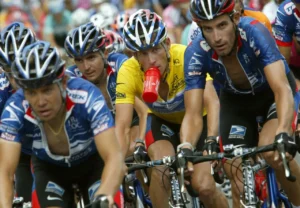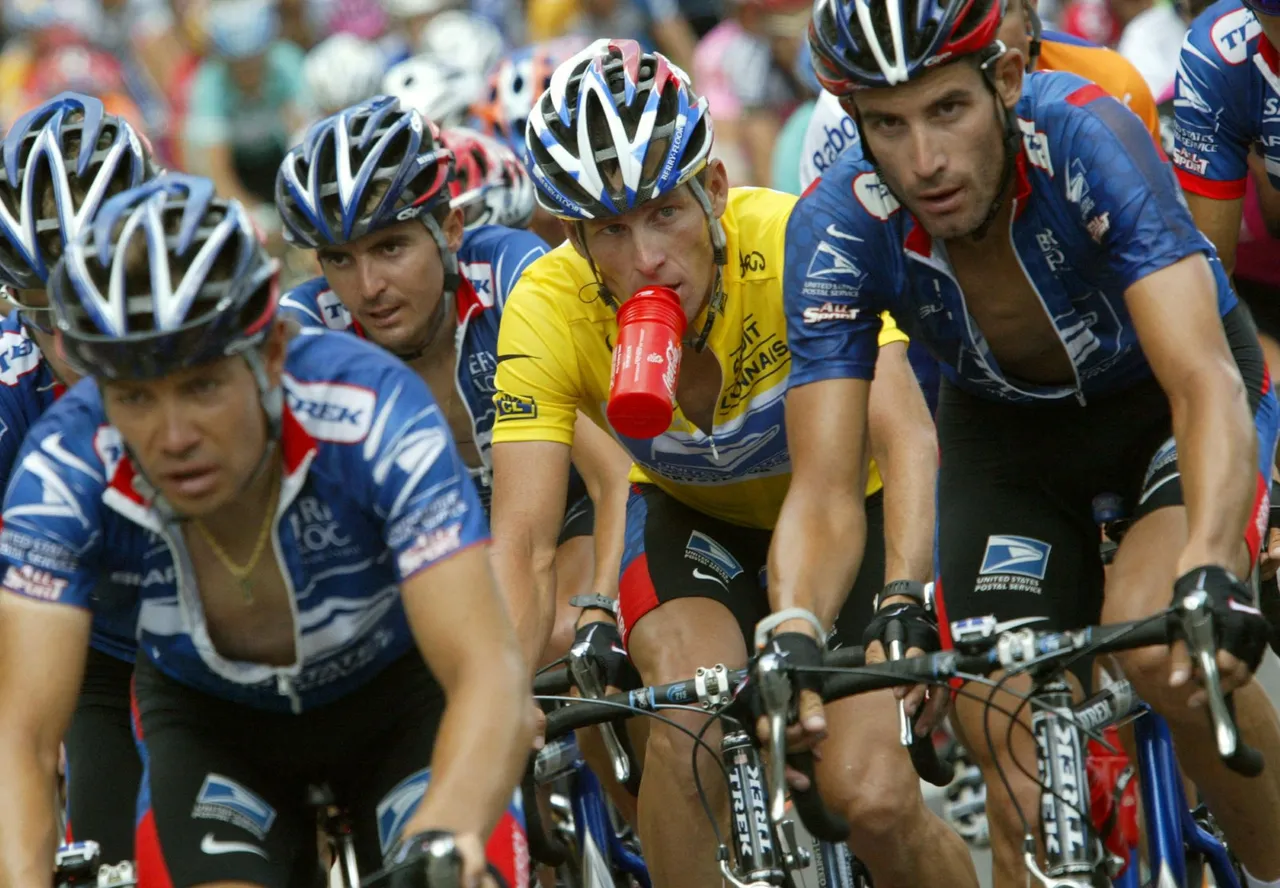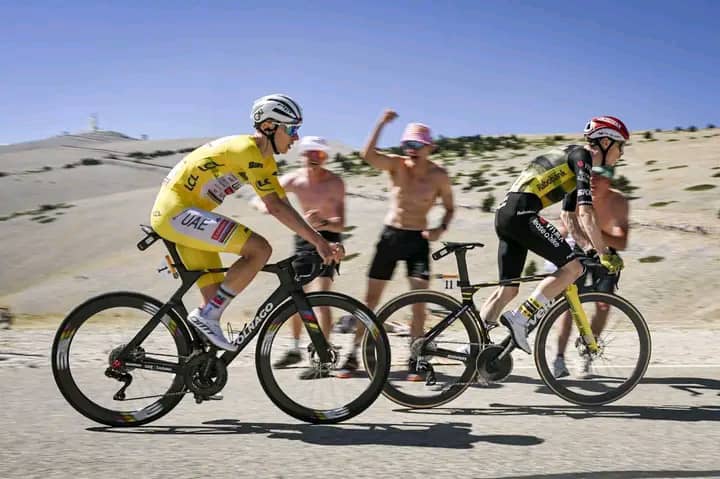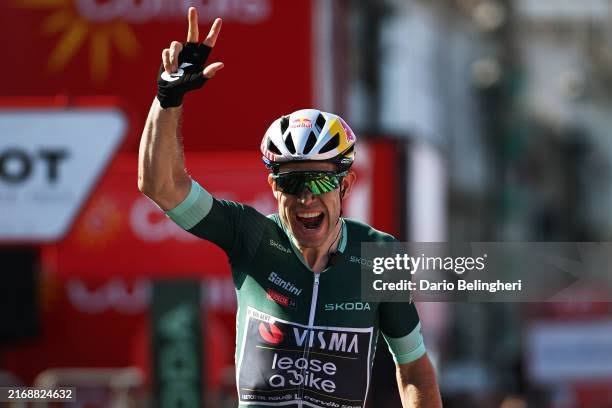**Lance Armstrong’s Sponsorship Involvement with the New American Pro Team and Its Impact on Cycling**
Lance Armstrong, once celebrated as a cycling legend, has experienced a tumultuous journey marked by extraordinary achievements and controversial downfall. His doping scandal and subsequent lifetime ban from professional cycling dramatically altered his career and reputation. Despite this, Armstrong’s influence continues to ripple through the sport, particularly through his involvement in various projects, sponsorships, and entrepreneurial ventures. One such notable aspect is his current association with the new American professional cycling team, *Modern Adventure Pro Cycling*, led by George Hincapie, a former teammate and close friend.

This article explores Armstrong’s sponsorship involvement with the team, the nature of this relationship, and the broader implications within the cycling world, especially considering his lifetime ban. We will analyze how Armstrong’s ongoing influence persists, the significance of his sponsorship roles, and what this means for the sport’s future.
1. Background: Lance Armstrong’s Legacy and Controversy
**Rise to Stardom**
Lance Armstrong’s journey to cycling greatness was meteoric. He won the Tour de France seven consecutive times from 1999 to 2005, establishing himself as one of the sport’s most dominant figures. His inspiring story of overcoming cancer further endeared him to fans worldwide. Armstrong’s foundation, the Livestrong Foundation, became synonymous with cancer awareness and support, elevating his profile beyond cycling.
**Doping Scandal and Lifetime Ban**
However, in 2012, the U.S. Anti-Doping Agency (USADA) published a comprehensive report accusing Armstrong of doping. The evidence uncovered revealed a sophisticated system of performance-enhancing drug use, spanning years, with Armstrong at its center. Subsequently, the Union Cycliste Internationale (UCI) stripped him of his titles and imposed a lifetime ban from professional cycling.
The scandal tarnished his legacy, leading to widespread debate about doping, sports ethics, and redemption. Despite his ban, Armstrong maintained a significant following and continued to influence cycling culture through various ventures.
2. Modern Adventure Pro Cycling: A New Chapter
*Modern Adventure Pro Cycling* is a relatively new American professional cycling team launched with the vision of promoting American talent and fostering a culture of adventure, innovation, and sustainability. The team emphasizes not just competitive success but also community engagement and environmental consciousness.
**Leadership and Vision**
George Hincapie, a legendary American cyclist and Armstrong’s former teammate, founded the team. Hincapie’s experience and reputation in the sport lend credibility and a strong foundation for the team’s growth. The team aims to compete at the UCI Continental level initially, with aspirations to ascend to higher tiers.
3. Armstrong’s Sponsorship Role: The Move Podcast and Beyond
**The Move Podcast**
Lance Armstrong hosts *The Move*, a popular cycling podcast that delves into various topics within the sport, from race analysis and athlete interviews to discussions on doping, mental health, and the future of cycling. The podcast has garnered a substantial following, serving as a platform for Armstrong to share insights and promote dialogue.
**Sponsorship and Endorsement**
Armstrong’s involvement with *Modern Adventure Pro Cycling* is primarily through sponsorship and promotional support. His association with the team is notable because it signifies a form of endorsement that does not conflict with his lifetime ban, which applies specifically to competition participation and official UCI events.
**The Nature of His Involvement**
– **Financial Sponsorship:** While details are confidential, Armstrong’s financial backing and promotional efforts are instrumental in helping the team secure resources and visibility.
– **Brand Association:** His endorsement via *The Move* podcast enhances the team’s profile, attracting media attention and potential sponsors.
– **Mentorship and Advisory Role:** Although not involved in race-day decisions, Armstrong provides mentorship and strategic advice based on his extensive cycling experience.
**Legal and Ethical Considerations**
Armstrong’s support does not violate UCI regulations because he is not competing or participating directly in sanctioned events. His sponsorship aligns with the sport’s rules, which prohibit doping violations but do not restrict former athletes or sponsors from supporting teams outside official competition.
4. The Significance of Armstrong’s Involvement
**Breaking the Silence**
Armstrong’s participation in sponsorship reflects a broader conversation about redemption and the complex nature of sports ethics. His support for Hincapie’s team indicates a willingness to rebuild trust and contribute positively to the sport’s development.
**Influence on American Cycling**
His involvement can boost the team’s visibility, attracting sponsors, media attention, and young riders inspired by American cycling legends. This influence might help elevate the sport’s profile domestically and internationally.
**Controversy and Public Reception**
While some fans appreciate Armstrong’s efforts to support cycling’s growth, others remain skeptical or critical, citing past misconduct. The ongoing debate centers on whether Armstrong can or should regain trust in the sport.
5. Broader Implications for Cycling
**Rehabilitation and Redemption**
Armstrong’s sponsorship role exemplifies the ongoing debate on forgiveness and redemption in sports. While he remains banned from competition, his capacity to influence and support the sport outside the race circuit is a nuanced issue.
**Regulatory Perspectives**
Cycling governing bodies continue to enforce bans on doping violations, but sponsorship and mentorship roles are less regulated, provided there is no active competition involvement.
**Impact on Anti-Doping Efforts**
Some critics argue that Armstrong’s sponsorship could undermine anti-doping efforts, while supporters believe it can foster transparency and open dialogue about doping and ethics.
Future Prospects and Challenges
**Potential Growth of the Team**
With Armstrong’s backing, *Modern Adventure Pro Cycling* has the potential to grow rapidly, attracting talented riders and sponsors. His influence could help the team secure key UCI licenses and compete at higher levels.
**Navigating Public Perception**
The team and Armstrong face the challenge of balancing transparency, redemption narratives, and skepticism. Maintaining credibility will require ongoing dialogue and demonstrated commitment to integrity.
**The Role of Podcasts and Media**
*The Move* podcast continues to serve as a platform for Armstrong to shape narratives, discuss cycling issues, and promote the team’s vision, making media a critical component of their strategy.
Lance Armstrong’s sponsorship involvement with George Hincapie’s *Modern Adventure Pro Cycling* represents a complex intersection of sports ethics, personal redemption, and the ongoing evolution of professional cycling. While Armstrong remains banned from competition, his support through financial backing, mentorship, and media engagement highlights the multifaceted nature of influence within the sport.
As the cycling community continues to grapple with issues of doping, trust, and integrity, Armstrong’s ongoing role—whether as a controversial figure or a pioneering supporter—will undoubtedly shape the narrative of American cycling’s future. His story underscores that, within sports, redemption and influence can persist beyond official sanctions, prompting ongoing reflection on what it means to rebuild trust and foster growth in competitive environments.


